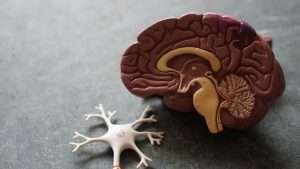Summary:
- Our gut is home to a complex and diverse ecosystem of microbes that play a critical role in our overall health.
- Gut health affects various aspects of our well-being, including immunity, risk of certain diseases, sleep, hormonal balance, and mental health.
- A diverse microbiome is key to maintaining a healthy gut ecosystem and supporting our immune system.
- The gut-brain axis highlights the connection between our gut and brain, with the two constantly communicating through neurotransmitters, hormones, and immune system signaling.
- Simple changes in diet and lifestyle can improve gut health and support overall well-being.
The Incredible World of Gut Health: Unraveling the Mysteries of Our Microbiome
Our gut is home to one of the most complex and diverse ecosystems on Earth. To give you an idea of the scale, if one grain of rice represents the world’s entire population (eight billion people), then we would need more than 5,000 times that amount to represent the number of microbes in our gut! That’s around 40 trillion microbes living within us. In fact, we have more microbes in our gut than human cells in our entire body.
Gut health is one of the most critical yet often overlooked aspects of our overall well-being. When we talk about gut health, we’re generally referring to our microbiome – a community of organisms that live in our large intestine. Our digestive system is important for digesting food but also plays a significant role in other aspects of our health such as immunity, risk of diseases like diabetes or heart disease, sleep quality, hormonal balance, and even mental health.
Watch my full YouTube video below
Some Mind-blowing Facts About Our Gut
- There are more microbes in our gut than there are stars in our entire galaxy (the Milky Way).
- Our gut can house over 1,000 different species of microbes.
- At least 70% of our immune system lives in our gut.
- The bacteria in our gut can weigh up to 2 kilograms, more than the weight of our entire brain.
- Our gut is directly connected to our brain, constantly communicating together which may play a role in our mental health.
How Gut Health Works
Our bodies have evolved an intimate symbiotic relationship with the microbial communities that live inside us. These microbes help us break down and digest food, synthesise essential compounds for our health and survival, and play an important role in developing and maintaining our immune system.
The intestines are designed with a large surface area to facilitate this relationship. If stretched out completely, they would cover more area than an entire tennis court. It’s essential to focus on good gut health to maintain a strong barrier between us and the outside world.
Imagine your microbiome as a diverse tropical rainforest filled with various species fulfilling different ecological niches. A diverse ecosystem is a healthy one, and it’s the same for our gut and microbiome. We want a diverse and healthy ecosystem that’s resilient and responsive to disease and imbalance.
Another fascinating aspect of gut health is the gut-brain axis – the connection between our gut and brain. The vagus nerve connects our brain to our heart and gut, allowing for constant communication through neurotransmitters, hormones, and immune system signaling. This means that the state of our gut can directly impact what’s going on in our brain and vice versa.
Key Takeaways: How to Improve Your Gut Health
- Eat a diverse range of whole plant foods such as fruits, vegetables, nuts, seeds, legumes, and whole grains. These foods contain prebiotic fibre that feeds the beneficial microbes in our gut. Studies show that people eating more than 30 unique plant foods per week have the best gut health and experience the most benefits that come with it.
- Incorporate naturally fermented probiotic foods into your diet like yogurt, kefir, kombucha, sauerkraut, kimchi, or miso. A 2021 study found that people eating more fermented foods had lower levels of inflammation in their bodies.
- Stay hydrated to promote good digestion. Drinking enough water is important for promoting good digestion and keeping everything moving! This helps to maintain a healthy microbiome as well.
- Manage stress by taking time each day to slow down and de-stress in a way that works for you. Because of the interconnectedness of our gut and brain, when we’re stressed it can have an impact on our gut – and our gut can have an impact on our mental health as well. Taking time each day to destress helps maintain an effective connection between the gut and the brain and supports the health of our gut and microbiome.
Conclusion
Gut health is an incredibly fascinating topic with a profound impact on our overall well-being. By making simple changes to your diet and lifestyle, you can harness the power of your microbiome to improve your health, boost your energy, and genuinely feel your best as you navigate life’s journey. It’s time to give these trillions of tiny helpers inside you the attention they deserve because, at the end of the day, there are more of them than there are of ourselves. So take care of them!
Frequently Asked Questions
Q: What is the gut microbiome?
A: The gut microbiome is a community of microorganisms (bacteria, fungi, viruses, and other microbes) that live in our large intestine. These microbes play a critical role in our overall health by helping us digest food, synthesize essential compounds, and maintain our immune system.
Q: How does gut health affect our overall well-being?
A: Gut health affects various aspects of our well-being, including immunity, risk of certain diseases like diabetes or heart disease, sleep quality, hormonal balance, and even mental health. A healthy gut ecosystem supports a strong immune system and helps maintain overall health.
Q: What can I do to improve my gut health?
A: To improve your gut health, eat a diverse range of whole plant foods, incorporate naturally fermented probiotic foods into your diet, stay hydrated for good digestion, and manage stress by taking time each day to slow down and de-stress in a way that works for you.
Q: How does the gut-brain axis work?
A: The gut-brain axis is the connection between our gut and brain through the vagus nerve. The two constantly communicate through neurotransmitters, hormones, and immune system signaling. This means that the state of our gut can directly impact what’s going on in our brain and vice versa.
Q: Why is diversity important for a healthy gut ecosystem?
A: A diverse microbiome is key to maintaining a healthy gut ecosystem because it creates a resilient and responsive environment that can better protect against disease and imbalance. A diverse ecosystem supports various functions necessary for overall health.
References and Further Reading
https://www.ncbi.nlm.nih.gov/pmc/articles/PMC4991899/
https://www.ncbi.nlm.nih.gov/pmc/articles/PMC6682904/
https://pubmed.ncbi.nlm.nih.gov/25864640/
https://pubmed.ncbi.nlm.nih.gov/33803407/
https://pubmed.ncbi.nlm.nih.gov/33493503/
https://pubmed.ncbi.nlm.nih.gov/29795809/







0 Comments